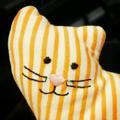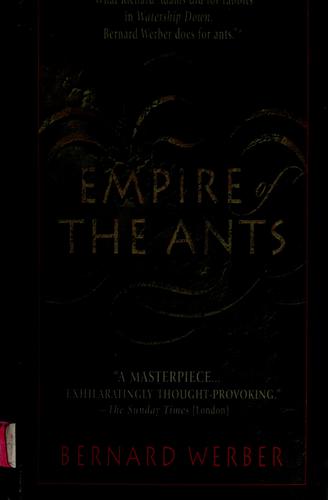Akasha reviewed Empire of the ants by Bernard Werber
Review of 'Empire of the ants' on 'Storygraph'
2 stars
The review is based on the Hungarian translation. Admittedly, it might truly be terrible compared to the original, but I cannot imagine that all of the book's faults are to be blamed on a (debatably) bad translation.
The novel is bold in its philosophical ambition yet pathetically weak in the execution of those ideas. The human part of the book is not only bland, filled with one-dimensional characters who act and think upon absolutely improbable motivations, but completely disrupt the pace of the otherwise somewhat interesting ant adventure. The reader's engagement with the latter is time and time again violently cut back to the offensively absurd charade of the absolutely unbelievable humans, who only seem to serve as a semi plot setup for the sequels - yet their shenanigans take up at least one-third of the book if not more.
The scientific, political and philosophical contexts are, in most cases throughout the text, misguided. The writing is like that of a child's who doesn't re-read what they have written - too often does the author just come up with a solution, or even worse, a complete undoing to everything leading up to that point. When the deus ex machina approach proves too much for the writer's imagination, he explains events away by literally saying "somehow" or managing the events off-page.
Soon it becomes apparent that there are no stakes in the narrative. Important characters are disposable, common sense and reasoning are alien to the world, time (and oftentimes even space) is so relative that you give up on trying to understand why it is even being tracked. The plot is ultimately so ludicrous and hole-ridden that it is only shadowed by how badly the author researched the science behind it.
The "wisdom" of the book is painfully inconsistent. On the one hand, we read about the whimsical appeals to inclusion, a celebration of diversity, the condemnation of atrocities throughout history, and other utopia-chasing ideals (which I am by no means against). Yet, the pages are scattered with implications of bigotry towards non-western cultures, meaningless acts of aggression, and literal (human) physiognomy. I'm sure I'm leaving out a couple, as the most common gesture I made while reading was shaking my head in disbelief - something I don't remember ever doing above a book, and while doing so, I must have suppressed many alarming sentences. (To be clear: I wouldn't even have finished reading this if a close friend didn't ask me to do so in order to discuss it.)
The only good thing about this is the attempt (hence an extra star) to showcase the life in the "insectocosm". However, even that is flawed, filled with fanciful misinterpretations, inconsistencies and outright fabrications (while pretending to be selling the truth).
While the title seems to be mainly aimed at a younger audience, I would strongly suggest any parent against giving it to Their child, as they would risk implanting misconceptions about sensitive scientific topics (such as evolution, which is only one of many concepts the book pathetically distorts). It is also pretty dark at times, but that I would otherwise call an advantage, was it not for the whole experience being a distasteful struggle.
This was a true pain to read, filling me with outrage. I cannot imagine reading the rest of the series, especially when the consensus seems to be that the books only get worse. My next read will be "The Bees" by Laline Paul, hoping that it will counterbalance the void I received from suffering through the infantile storytelling of "Empire of the Ants" with something much more pleasant and fulfilling.

